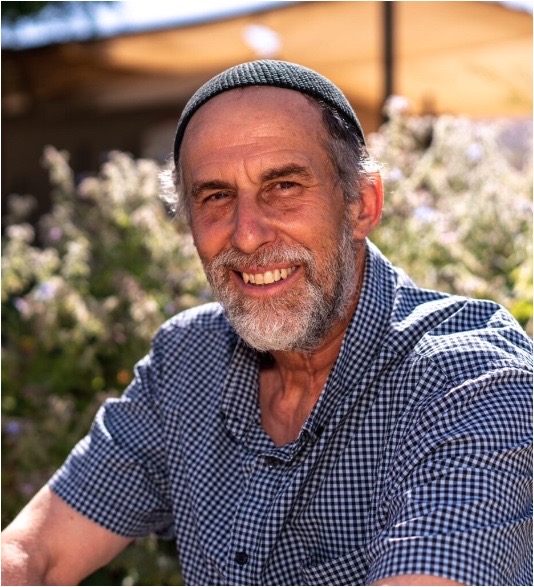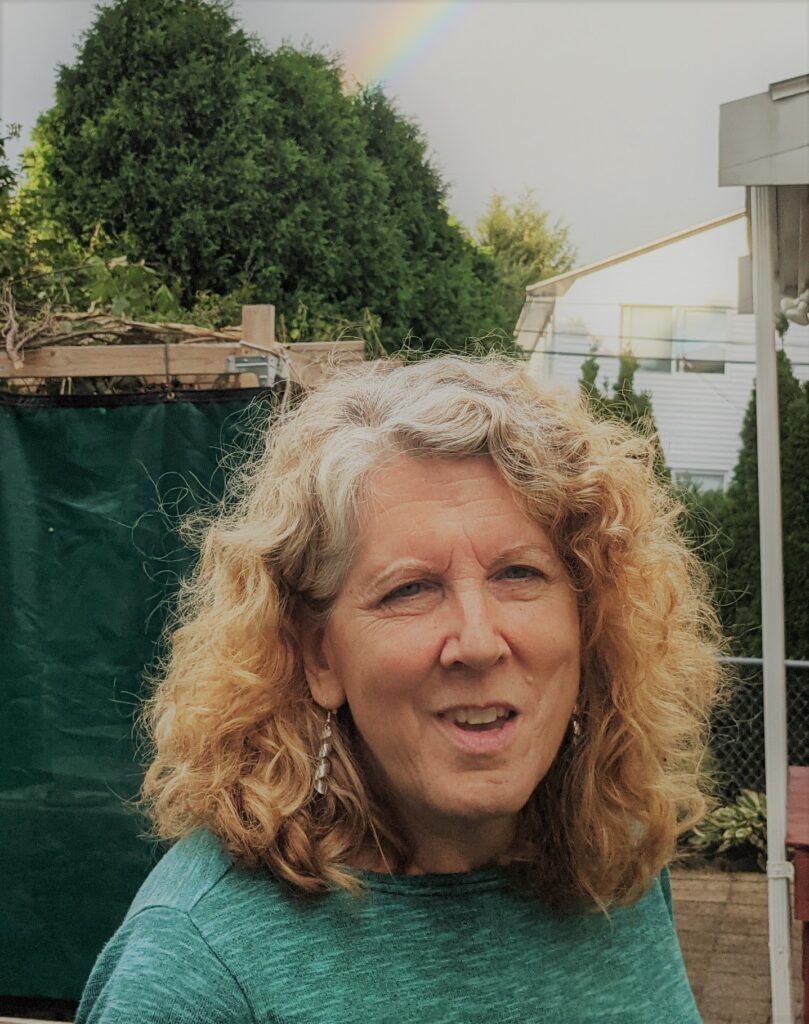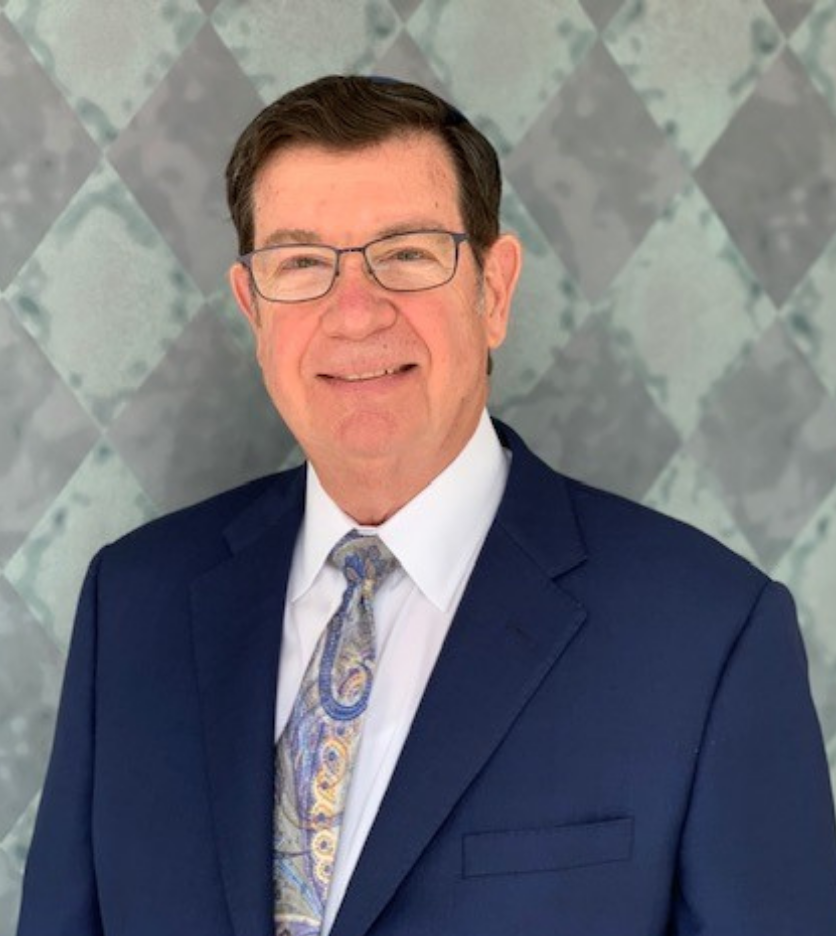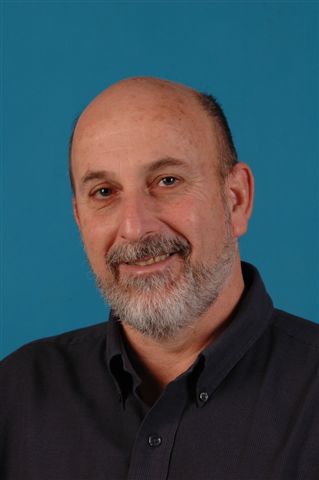with Rabbis Michael Cohen, Barbara Penzner, Gail Shuster-Bouskila, Dennis Sasso, and Dr. Shlomi Ravid
April 23, 2023
Webinar Panelists

Rabbi Michael Margaretten Cohen is a faculty member of the Arava Institute for Environmental Studies and Bennington College. He teaches courses on conflict resolution, the Bible, and the environment. Rabbi Cohen has been a Policy Advisor to the Office of the Special Envoy for Middle East Peace, U.S. Department of State and a Speechwriter Adviser to the Office of the White House Speechwriters. He was recently named to the Advisory Board of the Partnership Peace of USAID established by Congress. Cohen, the rabbi emeritus of the Israel Congregation in Manchester Center, Vermont is the author of numerous articles that have appeared in the Middle East and the United States. He has a monthly commentary of the Torah reading of the week in the Jerusalem Post as well as a regular column in the Jerusalem Post called Letter from America. He is the author of “Einstein’s Rabbi: A Tale of Science and the Soul.” Cohen co-founded of the Green Zionist Alliance. Cohen serves on the Board of Trustees of the Burr & Burton Academy, the Mount Equinox Preservation Trust, the Green Sabbath Project, KaTO Architecture, Shomrei Breishit: Rabbis and Cantors for the Earth, and the Jerusalem Peacebuilders. He is a recipient of the Eliav Sartawi Award for Middle East Journalism from the Search for Common Ground.
Rabbi Barbara Penzner has served Reconstructionist Temple Hillel B’nai Torah in Boston since 1995. Prior to coming to HBT, she lived in Israel from 1993-1995 as a Jerusalem Fellow. From that experience, she wrote the article, “Kaplan’s New Zionism Comes of Age,” published in The Reconstructionist Journal in 1995. She has served the Reconstructionist Movement as RRA President, Chair of several RRA Committees, and co-chair of various Commissions. She currently co-chairs the Joint Placement Commission.


Rabbi Gail Shuster-Bouskila has earned two degrees in education. She finished her rabbinic studies requirements at Hebrew University and was ordained at Reconstructionist Rabbinical College in Philadelphia in 1979. She is the first woman rabbi in Israel.
Since making Aliyah in 1978, she has been a free-lance rabbi. She has counseled many people on life cycle events, including women’s issues, marriage and Bar/Bat Mitzvah and has lectured around Israel about modern Midrash, liberal Judaism, women’s issues and the philosophy of Rabbi Mordecai Kaplan. Her midrashim on the weekly Torah portions are on her website https://midrash-harabah.org/.
She retired from the Academic English department of the Open University of Israel in 2017, but still tutors students with Learning Disabilities to complete their English Language requirement.
Dr. Dennis C. Sasso has been Senior Rabbi of Congregation Beth-El Zedeck since 1977. A native of the Republic of Panama, Rabbi Sasso descends from Spanish/Portuguese Sephardic families who settled in the Caribbean following the discovery of the Americas.
Rabbi Sasso obtained his B.A. in Near Eastern and Judaic Studies at Brandeis University, an M.A. in Religion from Temple University, and was ordained at the Reconstructionist Rabbinical College in 1974. He holds a Doctorate of Ministry in Theology from Christian Theological Seminary in Indianapolis, Indiana where he is Affiliate Professor of Jewish Studies. He is the recipient of various Doctor of Divinity Honorary degrees.
He and Rabbi Sandy Eisenberg Sasso, the first woman ordained by the Reconstructionist Movement, are the first rabbinical couple in world Jewish history. Rabbi Sasso has served on many boards including the Indiana Board of Rabbis, the Jewish Federation of Greater Indianapolis, United Way of Central Indiana, the Immigrant Welcome Center, Brebeuf Jesuit Preparatory School Board of Trustees and the Lake Family Institute Advisory Board.
In 2022 he and his wife, Sandy Eisenberg Sasso, were designated Indiana Living Legends by the Indiana Historical Society and were listed among the top 250 influential leaders in Indiana. He is a recipient of the “Interfaith Ambassador of the Year” award (along with Sandy Eisenberg Sasso) from the Center for Interfaith Cooperation and the Sagamore of the Wabash for Distinguished Citizen Award from the Governor of the State of Indiana.
He and Sandy have a son, David (Naomi) and a daughter, Debora (Brad). They have four grandchildren, Darwin, Ari, Levi and Raven.


Dr. Shlomi Ravid has been a pioneer in developing Peoplehood education. In his 35 years of involvement in Jewish Global affairs he was the founding director of the Israel Center of San Francisco, the founding director of the International School for Jewish Peoplehood Studies at Beit Hatfutsot, and the founder of the Center for Jewish Peoplehood Education. During his term in San Francisco Shlomi founded with the Helen Diller Family Foundation, the Diller Teen Fellows program.
Shlomi initiated in 2008 and edits the Peoplehood Papers. He has published over forty articles and studies on Jewish Peoplehood and led the creation of the Peoplehood Education Toolkit. He is currently on faculty at the Spertus Institute for Jewish Learning and Leadership.
Shlomi is a member of Kibbutz Glil-Yam where he was born, married to Linda (originally from San Francisco) and considers his four children as his biggest contribution to humanity. His PhD in Philosophy from Tel Aviv University explored the relations between norms and values and examined the changing Kibbutz as a case study. His current academic focus is community and Jewish Peoplehood.
Many thanks to Mark and Margie Zivin, and Rabbi Gail Shuster-Bouskila for sponsoring this webinar!
Selections from A New Zionism by Mordecai Kaplan:
| Introduction Zionism has been defined as “that movement in Jewish life which seeks to foster a capacity among Jews for the living of a more abundant Jewish life.” So far that concept of Zionism has not even reached the talking stage. If it is ever to reach the action stage, we have to begin thinking and talking about the conception as soon as possible. To live a more abundant Jewish life, whether in Israel or outside, Jews will have to foster a form of religion which will be relevant both to the past career of the Jewish people and to the spiritual needs and world outlook of modern man. It will have to be a religion free from creedal and clerical authoritarianism, and able to meet the moral and spiritual needs of our day. Concluding Paragraph of Volume Zionism can emerge from its present crisis strengthened by the experience of challenge and danger. It can lead to the fulfillment of the prophecy that “from Zion shall go forth the Torah.” But before the Torah can go forth from Zion, it will have to enter into Zionism. |
